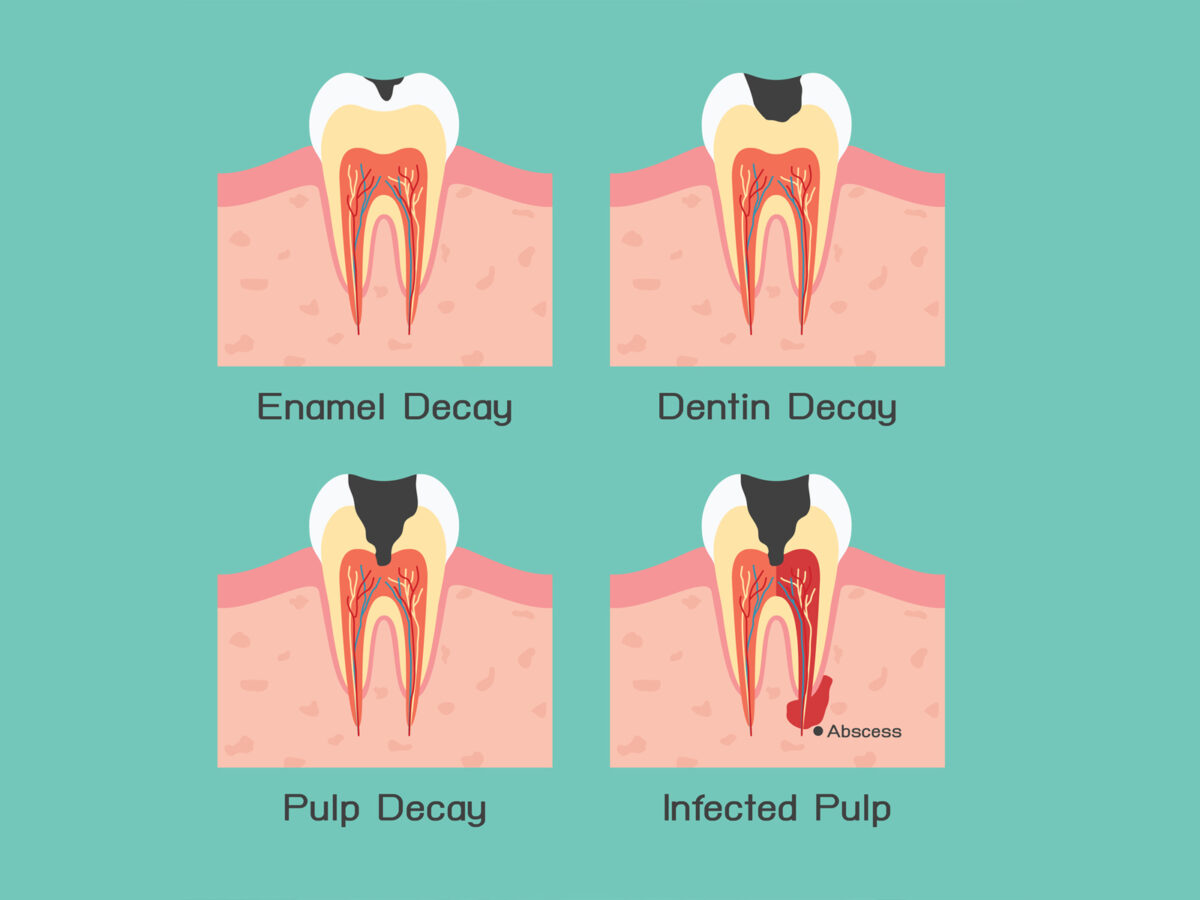Whether it is kids or adults, everyone has the risk of getting tooth decay or cavities. There are numerous reasons why people suffer from cavities, and one of the most crucial things that play an important role in this is your eating habit and brushing routine.
Dental cavities are most commonly characterized by pain and difficulty eating. Untreated gum disease can lead to inflammation, infection, tooth loss, abscess formation, and much more. Therefore, knowing how decay affects your dental health is vital.
Whether you call it cavity or dental caries, it is all the same, and at the end of the day, this condition should not be ignored. Cavities in the tooth are caused mainly by the bacterial breakdown of the tissues, which are located in the enamel, cementum, and dentin.
So, how can you cure dental cavities or decay? Or can you reverse dental caries? Or what are the steps to stop the oral cavity? If you are seeking answers to the same, then you are at the right place because, in this article, we will discuss everything in detail.
What are the causes of dental decay?
Before jumping on to the cure, let us start by knowing how dental cavities are caused. A cavity, tooth loss, or even dental abscess can result from tooth decay, which damages your teeth. Dental plaque is home to a variety of species of bacteria that cause this condition.
Sugars in your food can be converted into acids by bacteria in plaque. The acids in plaque can damage your teeth over time if they are allowed to build up, and later they can cause cavities. Therefore, good oral care is essential to prevent the same.
The presence of sugar on the surface of your teeth or plaque build can, over time, turn into tartar or cavity or periodontists in more severe cases. It becomes more difficult to treat tooth erosion once this occurs. And you will require dental assistance for the same.
Can tooth decay be cured or reversed?
Yes, there are various ways in which you can cure or reverse dental cavities. Though, there are various stages of oral caries like initial demineralization, enamel decay, pulp damage, and abscess, there are many ways to treat them:
- Use fluoride-based products: The early stage of teeth erosion can be treated with good quality fluoride toothpaste and other products like mouthwash. You must also make it a habit to floss your teeth on a daily basis.
- Fillings: Another option is fillings. When the enamel is completely damaged, dental fillings are used by dentists to fill the hole in the affected tooth/teeth.
- Crown: Crown is also one of the many options you can go for. An oral crown protects the top portion of your teeth that is damaged or has a cavity. Before the crown is placed, the decayed area is removed.
- Root canal: Next is the root canal. In this option, the affected pulp tissue is removed. After cleaning and filling the cavity, a cap is placed over the top.
- Teeth removal: Removal of teeth is another option to prevent further decaying. It is usually the last option when the condition reaches the abscess stage. Your dentist has no other option but to pull out your teeth to prevent any other dental complications.
Some preventative measures to look for
Below is the list of some preventative measures which you can use to stop or cure dental cavities:
- Limit sweet intake
- Drink fluoride-infused water
- Brush your teeth properly
- Use mouthwash and flossing thread
- Avoid smoking
- See your dentist at regular intervals
Hope these tips and all the information mentioned in this article will help you to take care of your oral cavity in a better manner.


